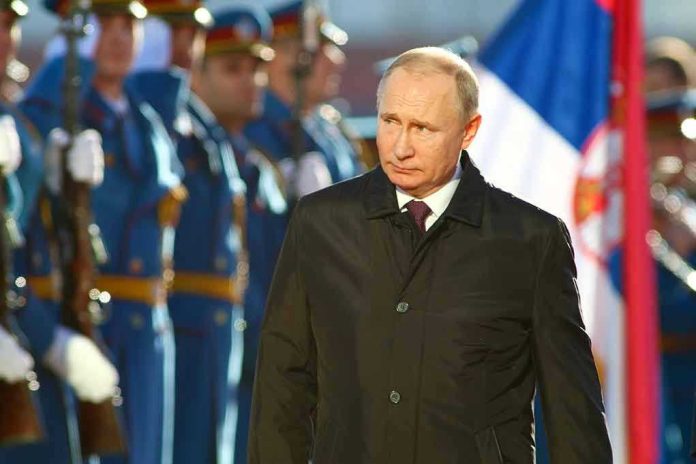
The withdrawal of Russia from a crucial arms treaty has revived Cold War tensions, raising concerns over international security and the future of arms control.
Quick Take
- Russia withdraws from the INF Treaty amid accusations of violations.
- Treaty breakdown revives Cold War tensions and arms race fears.
- Both U.S. and Russia are developing new missiles, escalating security concerns.
- NATO supports U.S. findings but didn’t endorse the withdrawal.
Historical Context of the INF Treaty
The Intermediate-Range Nuclear Forces Treaty, commonly known as the INF Treaty, was a seminal agreement signed in 1987 by U.S. President Ronald Reagan and Soviet leader Mikhail Gorbachev. Its primary accomplishment was the elimination of an entire class of nuclear and conventional ground-launched ballistic and cruise missiles with ranges between 500 and 5,500 kilometers. By 1991, a total of 2,692 missiles were destroyed, reducing the nuclear threat significantly in Europe and the Soviet Union.
The treaty played a key role in stabilizing the geopolitical landscape during the tail end of the Cold War. It successfully curbed the potential for medium-range nuclear missile deployments, a source of considerable tension in Europe at the time. However, the demise of this agreement due to accusations and counteraccusations between the United States and Russia has rekindled fears of a renewed arms race and increased nuclear threat.
The Collapse of the Treaty
For years, the United States accused Russia of violating the INF Treaty, pointing specifically to the development and deployment of the 9M729 ground-launched cruise missile, which allegedly exceeded the treaty’s limits. In response to these violations, diplomatic engagements were attempted but proved fruitless. In 2018, the Trump administration declared Russia in “material breach” of the treaty, and the United States suspended its treaty obligations in February 2019, officially withdrawing by August of the same year.
Russia, on its part, denied these allegations and accused the United States of its own violations linked to missile defense systems in Europe and the deployment of armed drones. These unresolved accusations and the subsequent withdrawal marked a significant escalation in U.S.-Russia tensions and the erosion of post-Cold War arms control architecture.
Impact on Global Security
The termination of the INF Treaty has far-reaching ramifications for international security. In the short-term, it has exacerbated tensions between the United States and Russia, creating uncertainty in European security dynamics. European nations, once shielded by the treaty’s restrictions, now face potential new deployments and heightened nuclear risks on their soil.
In the long term, the collapse of this treaty may spur an arms race, with both nations already working on developing new missile systems. The departure from this pivotal arms control agreement potentially leads to a landscape where military strategy might prioritize advanced missile capabilities rather than disarmament and diplomacy. This situation also diminishes trust in future treaty negotiations as international agreements’ effectiveness is now questioned.
Expert Opinions and Future Considerations
Arms control experts have expressed grave concerns over the dissolution of the INF Treaty and the potential it has to instigate a new arms race. While some analysts contend the treaty had become outdated in the face of China’s growing missile capabilities and Russia’s alleged noncompliance, others argue that its collapse is a step backward in global nuclear risk reduction efforts.
The debate continues over whether the U.S. withdrawal was strategically sound or counterproductive. Some experts believe that re-negotiating with updated terms and broader international inclusion, such as involving China, could have been a more constructive approach. Meanwhile, NATO, despite supporting the U.S. findings on Russia’s violations, has voiced concern over the loss of the treaty, though it did not endorse the withdrawal ultimatum led by the Trump administration.
Sources:
Wikipedia: Intermediate-Range Nuclear Forces Treaty
Arms Control Association: INF Treaty Overview




